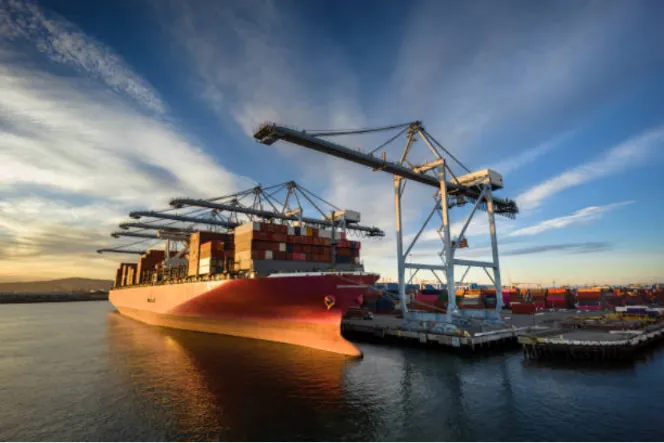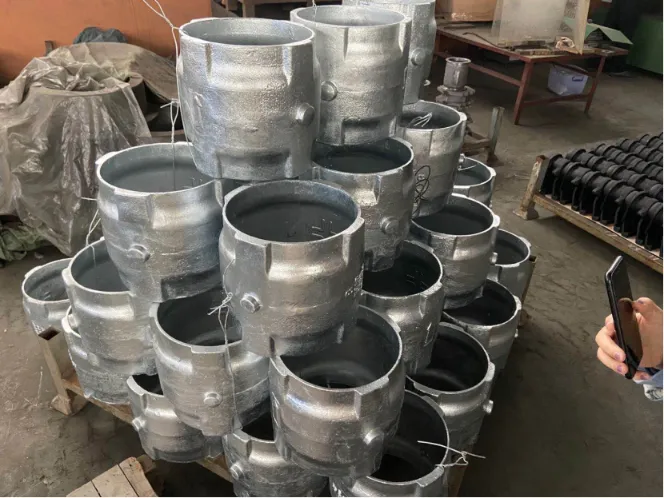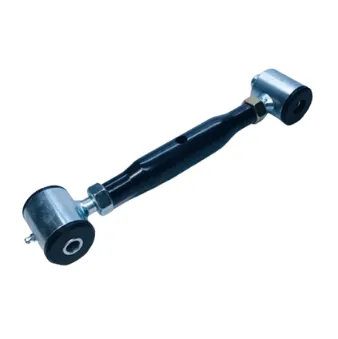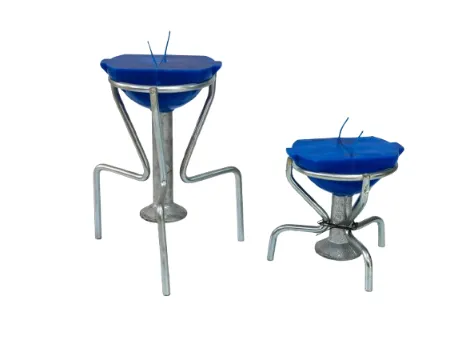Marine parts face tough challenges. Saltwater, harsh weather, and constant strain demand strong, reliable materials. Choosing the right alloy ensures parts last long, work well, and stay affordable.

Why Alloy Selection Matters in Marine Environments
Marine settings are rough. Saltwater eats away at metal fast. Parts like propellers, valves, and fittings must resist rust and handle tough conditions. A bad alloy choice can lead to quick breakdowns, pricey fixes, or even danger. For instance, a ship’s propeller that rusts too soon could cause big trouble at sea. Picking the right alloy isn’t just about doing the job, it’s about keeping things safe and dependable.
Key Performance Factors for Marine Components
Several things matter when choosing an alloy. Rust resistance is number one, as saltwater never quits. Strength and toughness are also key, especially for parts like engine pieces or fittings that face endless shaking and weight. Lighter alloys help save fuel, which is a big deal for ships. Cost and availability count too. Fancy alloys might sound nice, but if they’re too expensive or hard to find, they’re not practical. The trick is finding a balance.
Common Casting Alloys Used in Marine Industry
China’s casting industry, producing over 50 million tons of castings in 2023, offers many alloys for marine needs. Here’s a look at the main ones.
Aluminum Alloys: Lightweight and Corrosion Resistant
Aluminum alloys are popular for marine parts. They’re light, which boosts fuel savings, and they form a protective layer to fight rust. In China, aluminum is used in gravity casting and die casting for items like pump housings and fittings. Not every aluminum alloy works the same, though. Alloys like 5083 and 6061 offer a good mix of strength and rust resistance. But they can struggle in very acidic or alkaline waters. Fun fact: aluminum’s light weight makes it great for smaller boats, though it’s not always tough enough for heavy parts.
Bronze and Brass Alloys: Durability and Strength for Marine Components
Bronze and brass alloys have been used in marine settings forever, and they’re still awesome. They’re sturdy, resist rust well, and handle wear like pros. Bronze is a star in sand casting and gravity casting for things like propellers and valve bodies. In China, BaoQi often uses tin bronze or aluminum bronze for their great resistance to saltwater. Brass is less common but shines for decorative fittings. These alloys cost more, so they’re saved for parts where toughness is a must.
Stainless Steel Alloys: Corrosion Resistance and Structural Integrity
Stainless steel is a champ for marine use. Its chromium content forms a shield that laughs at saltwater. Alloys like 316 and 304 are common in China’s casting industry, used in investment casting for precise parts like turbine blades or fittings. Stainless steel costs more than aluminum but offers top notch strength and rust resistance. It’s a go to for parts that need to last for years, like on big ships or offshore platforms.
Key Considerations When Selecting Casting Alloys for Marine Components
Picking an alloy isn’t one size fits all. Here’s what to think about.
Corrosion Resistance: Protecting Against Saltwater Damage
Saltwater is a metal’s worst enemy. Alloys must stand up to constant salty exposure without pitting or cracking. Stainless steel and bronze do great here. Aluminum can work too, if mixed with stuff like magnesium to boost rust resistance. Always test how an alloy holds up in real ocean conditions. Lab tests are nice, but the sea plays rough.
Mechanical Properties: Strength and Toughness for Marine Components
Marine parts take a beating. Propellers spin fast, valves deal with high pressure liquids, and fittings face endless waves. Alloys need strength and toughness to avoid breaking or bending. Stainless steel is awesome for this. Bronze alloys, like aluminum bronze, are also solid picks. Aluminum is lighter but might not be tough enough for heavy jobs. It’s a choice between weight and strength.
Cost and Availability: Balancing Performance and Budget
Top tier alloys like stainless steel or nickel based superalloys are great but can cost a ton. Aluminum is easier on the wallet but may not handle critical jobs. China has plenty of raw materials, which keeps costs low for alloys like aluminum and steel. But rare alloys might take longer to get or cost more. Always weigh what you need against what you can afford. Sometimes a simpler alloy does the trick.

Advanced Alloy Options for Specialized Marine Applications
For tough jobs, standard alloys might not be enough. Here are some high end options.
Superalloys: High Temperature Performance in Marine Engines
Marine engines, especially in military or fast boats, need alloys that can take serious heat and stress. Nickel based superalloys, often used in investment casting, are ideal for turbine blades and exhaust parts. These alloys are pricey and hard to cast, but China’s advanced casting tech makes them easier to get. BaoQi, for example, has high tech foundries to make these alloys with precision.
High Performance Coatings for Enhanced Durability
Sometimes, an alloy needs extra help. Special coatings, like ceramic or polymer layers, can improve rust resistance and make parts last longer. These are super helpful for aluminum alloys, which might need a boost in harsh waters. China’s push for green casting has led to eco friendly coatings that work great without harming the planet.
How BaoQi Ensures the Best Alloy Selection for Marine Components
BaoQi is a leader in China’s casting industry, which rules global markets with its huge output and modern tech. Here’s how they make top quality marine parts.
Custom Alloy Development for Specific Marine Needs
Every marine job is different. BaoQi works with clients to create alloys that fit specific needs, like a light aluminum alloy for a yacht or a rust proof bronze for a cargo ship’s propeller. Their skills in sand casting, die casting, and investment casting let them handle all kinds of alloys and order sizes.
Quality Control and Testing for Marine Casting Components
Quality is everything in marine parts. BaoQi follows tough standards, often meeting ISO 9001 and IATF 16949 rules. They do strict tests, like salt spray checks for rust resistance and stress tests for strength. Third party checks and on site audits are also part of their process. Pro tip: always ask for a sample before a big order, it saves trouble later.
Conclusion: Making the Right Choice for Marine Components
Choosing the right alloy for marine parts is a balancing act. Rust resistance, strength, and cost all matter. Aluminum, bronze, and stainless steel are top picks, while superalloys and coatings handle special needs. Working with a trusted company like BaoQi, with its know how and focus on quality, makes things easier. China’s casting industry, with its high tech setup and huge scale, delivers great marine parts. Just don’t skip the homework, check certifications, test samples, and talk clearly to get the best outcome.
Frequently Asked Questions (FAQ)
Q1: Why are alloys so important for marine components?
Alloys decide how well a part handles saltwater, stress, and wear. The right alloy keeps things durable, safe, and working well in tough marine conditions.
Q2: Which alloy is best for marine applications?
It depends on the job. Aluminum is great for light parts. Bronze works for tough propellers. Stainless steel is awesome for rust proof fittings.
Q3: How does BaoQi ensure quality in marine castings?
BaoQi uses ISO 9001 certified steps, runs tough tests like salt spray and strength checks, and offers third party inspections to guarantee quality.
Q4: What’s the difference between aluminum and stainless steel for marine use?
Aluminum is lighter and cheaper but less tough. Stainless steel is stronger and resists rust better but is heavier and costs more.
Q5: Are there eco friendly alloy options for marine components?
Yup, many Chinese companies, including BaoQi, use recycled materials and green processes to make alloys that work great without hurting the environment.








